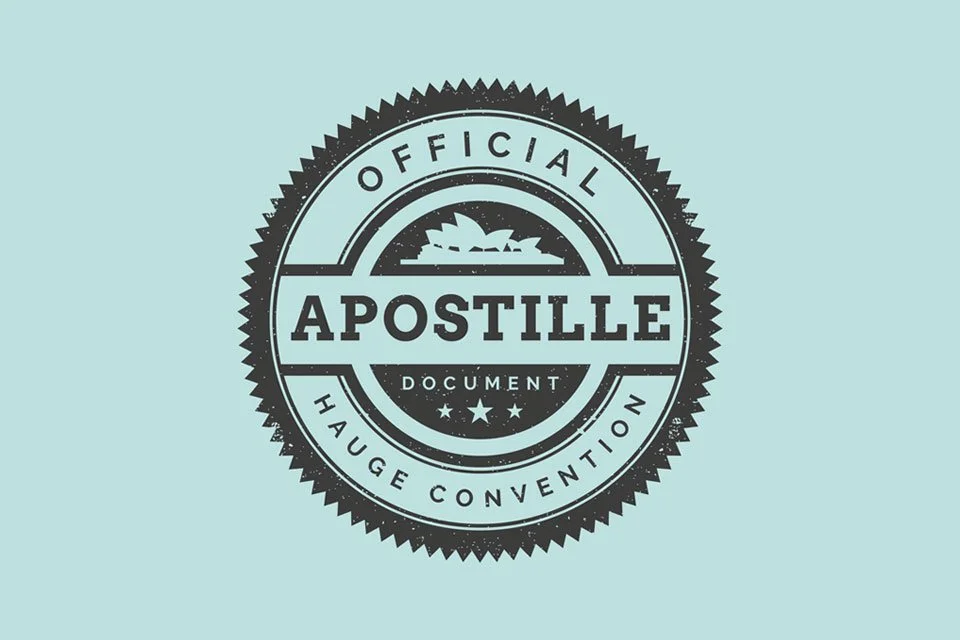Apostille (including Hague Apostille Country List)
1. What is an Apostille?
The term Apostille (pronounced ah-po-steel) comes from French, meaning "certification." An apostille is a special certificate attached to public documents to verify their authenticity, including signatures, seals, or stamps. It serves as an international form of authentication recognized under the Hague Apostille Convention of 1961.
In simple terms, an apostille ensures that a document issued in one member country will be accepted as legally valid in another member country. This system eliminates the need for additional legalization through consulates or embassies, making cross-border document recognition faster and more efficient.
Common examples of documents requiring an apostille include:
Birth, marriage, and death certificates
Academic diplomas and transcripts
Business contracts
Legal papers and affidavits
2. How to Get an Apostille?
The process of obtaining an apostille may vary depending on the type of document, but generally includes:
Step A. Have your documents notarized by a notary public (if required), or request the original or a certified copy directly from the issuing authority.
Step B. Apply for an apostille from the appropriate office:
For state-issued documents: Submit to the Secretary of State in the state where the document was issued.
For federal documents: Submit to the U.S. Department of State.
Once issued, the apostille certificate confirms the document’s authenticity and requires no further legalization for use in any Hague Apostille member country.
3. Hague Apostille Convention Member Countries
Below is the list of countries that currently accept apostilles under the Hague Convention:
Europe & Surrounding Regions
Albania, Andorra, Austria, Belgium, Bosnia and Herzegovina, Bulgaria, Croatia, Cyprus, Czech Republic, Denmark, Estonia, Finland, France, Georgia, Germany, Greece, Hungary, Iceland, Ireland, Italy, Kosovo, Latvia, Liechtenstein, Lithuania, Luxembourg, Malta, Monaco, Montenegro, Netherlands, North Macedonia, Norway, Poland, Portugal, Republic of Moldova, Romania, Russian Federation, Serbia, Slovakia, Slovenia, Spain, Sweden, Switzerland, Turkey, Ukraine, United Kingdom.
Americas
Antigua and Barbuda, Argentina, Bahamas, Barbados, Belize, Bolivia, Brazil, Canada, Chile, Colombia, Costa Rica, Dominica, Dominican Republic, Ecuador, El Salvador, Grenada, Guatemala, Guyana, Honduras, Jamaica, Mexico, Nicaragua, Panama, Paraguay, Peru, Saint Kitts and Nevis, Saint Lucia, Saint Vincent and the Grenadines, Suriname, Trinidad and Tobago, United States of America, Uruguay, Venezuela.
Asia-Pacific & Middle East
Armenia, Australia, Azerbaijan, Bahrain, Bangladesh, Brunei Darussalam, China (Hong Kong & Macau), India, Indonesia, Israel, Japan, Kazakhstan, Kyrgyzstan, Mongolia, New Zealand, Niue, Oman, Pakistan, Palau, Philippines, Republic of Korea, Samoa, Saudi Arabia, Singapore, Tajikistan, Tonga, Uzbekistan, Vanuatu.
Africa
Botswana, Burundi, Cabo Verde, Eswatini, Lesotho, Liberia, Malawi, Mauritius, Morocco, Namibia, Rwanda, São Tomé and Príncipe, Senegal, Seychelles, South Africa, Tunisia.
(Please note: The full Hague Apostille country list is subject to updates. Always confirm with your local authority for the most recent information.)
4. Apostille vs. Authentication for Non-Hague Countries
If your document is destined for a Non-Hague Convention country, you cannot use an apostille. Instead, your document must go through the authentication and legalization process, which usually involves:
Certification by the issuing authority
Authentication by the U.S. Department of State (if applicable)
Legalization at the destination country’s embassy or consulate

